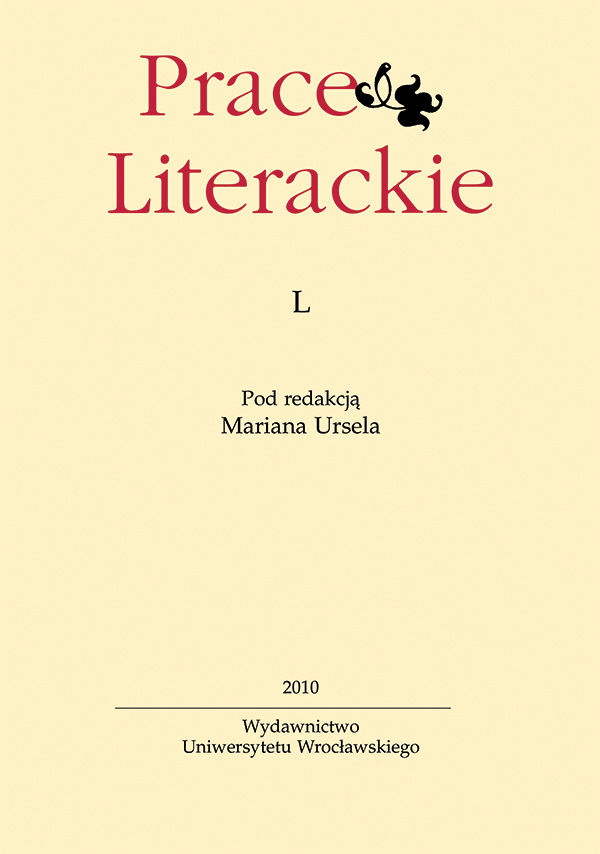

Articles

Indians and the Whites from the picaresque perspective — Thomas Berger’s novel Little Big Man
The picaresque context of Thomas Berger’s novel is, of course, evident. In my article I refer to a text of an American author concerning this question but, at the same time, I try to specify it as much as I can. I do my best trying to show all the picaresque aspects of the famous literary epic: the adventure structure of plot, specific treatment of space, which is dynamic, changeable and dominating over the whole plot, the panorama of social environments of Indians and Whites in which the protagonist stays alternately, and, first of all, the construction of the protagonist, i.e. Jack Crabb who is a literal picaro, with his plebeian social background, his orphanhood, loneliness, pragmatism, low respect for moral rules, resiliency and others. The important point of my presentation is also the analysis of narration of the novel that is typical for the genre of picaresque — pseudoautobiographical and, of course, first-person narration. Such structure of telling the story causes the functioning of two levels of the fictional world — the level of the external past events and the inner world of feelings and thoughts of the narrator who is also a protagonist. The article contains many examples and quotations from Berger’s novel as the material backing the thesis formulated in it.